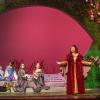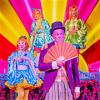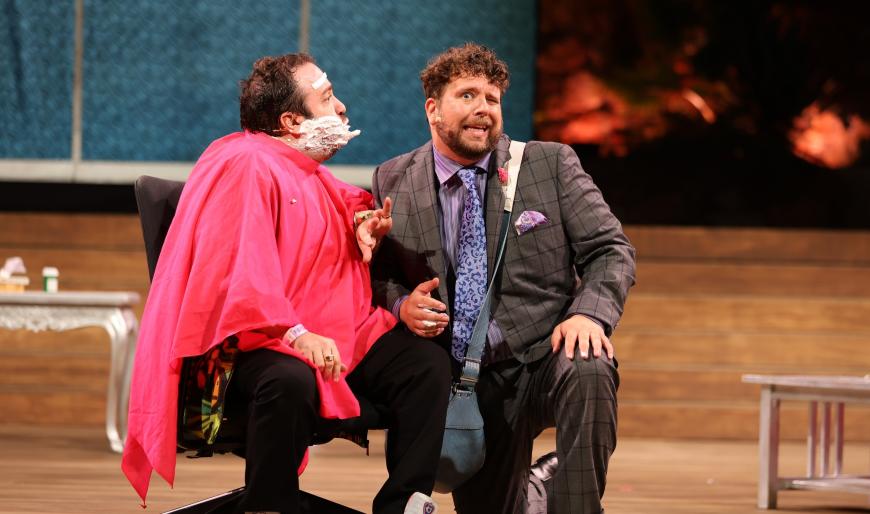
As a recent transplant to Southern California, I’ve had to resist the East Coast stereotype that Los Angeles revolves solely around “the industry.” But as the magenta lights threw the northern hills surrounding the John Anson Ford Amphitheatre into dramatic, post-sunset relief, it was impossible not to think of the city’s entertainers, whose existences and dwellings north of the city are an inescapable specter of pop culture worldwide. It was also a perfect setting for Pacific Opera Project’s contemporary retelling of The Barber of Seville as a tale about a pop princess, the shadowy forces that seek to control her, and her one true love.
Rossini’s opera is filled with lightness on many levels, its story full of hidden plots and comic mishaps, its vocal music full of delicate, triumphant athleticism. POP’s reimagining updated and, save a few heavy-handed turns toward overtly topical commentary, largely upheld the farcical tone of the work without becoming mired in the grotesquerie which too often pervades pop-star narratives.
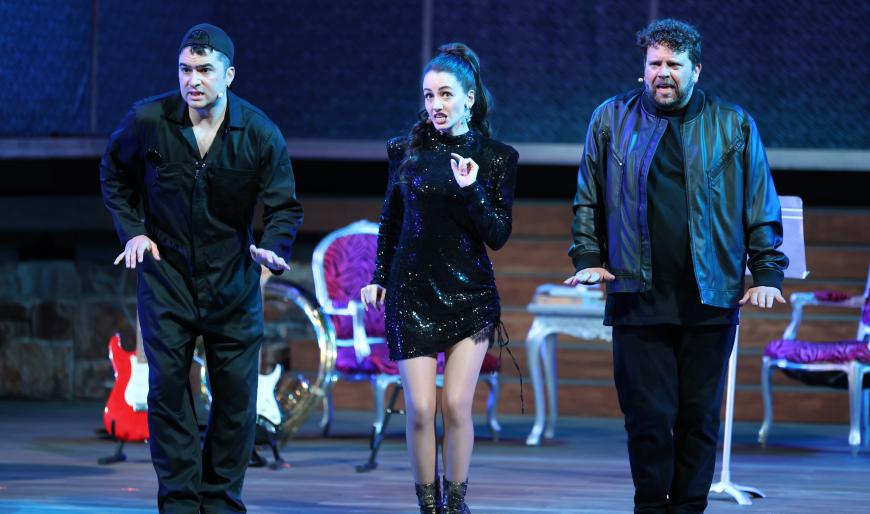
At its best, the contemporary lens helped support the riotous swagger and capricious plotting of the opera’s characters. The slang-laden supertitles enlivened Figaro’s boastful introductory aria, already some of the evening’s most memorable singing due to baritone Johnathan McCullough’s acting and strikingly clear diction in quick passagework. His voice also anchored many of the most successful ensemble moments alongside the gifted mezzo-soprano Meagan Martin (Rosina). Martin ably communicated her character’s self-possession with a cultured tone teeming with wit.
The evening’s other performers also helped to maintain the production’s warmth. E. Scott Levin (Dr. Bartolo) and the sonorous Andrew Potter (Don Basilio) played effectively off each other, setting the audience alight with giggles as they fought, singing, over inhalable unmentionables while hatching their deceitful plot. The chorus members contributed a similarly riotous energy, emphasizing director Josh Shaw’s slapstick choreography.
Sergio González’s Count Almaviva was most compelling during lyrical moments of longing that showcased the tenor’s buttery and unforced upper register. And the orchestra, led by conductor Kyle Naig, grew into a warmly supportive and nimble sound after a tentative overture.
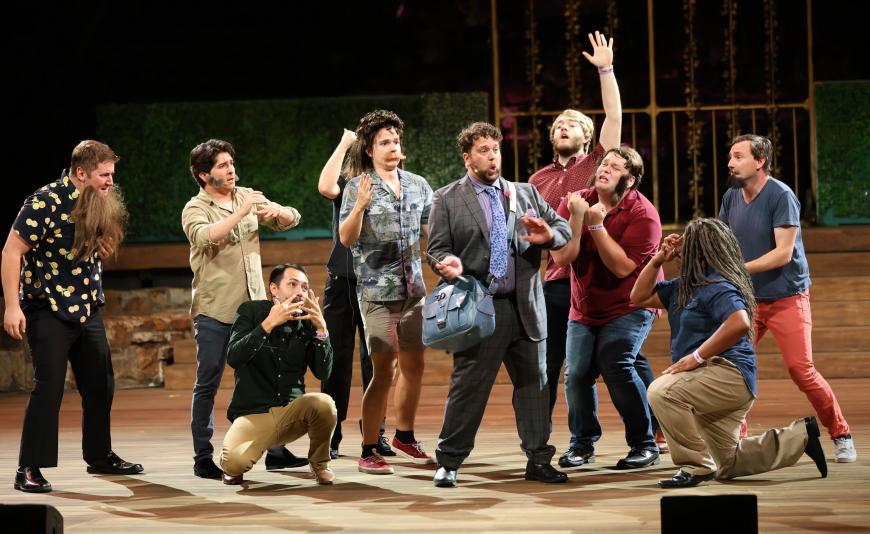
Because of the evening’s levity, however, the performance’s labored moments were starkly visible. Projected slideshows glibly priming Hurricane Hilary and striking actors for quick laughs hit an occasional sour note, and some contemporary intrusions (notably, Dr. Bartolo’s proclamation that he would “#cancel” Almaviva and the inclusion of the Nae Nae in the ensemble choreography at the close of Act 1) felt forced or under-considered.
Modernizations of classic tales can labor under the weight of a dual framing or work too obviously to sanitize a story’s moral drivers to better suit our contemporary values. The worst offenders can even make one consider the prudence of this process of translation altogether. But Friday’s rendition of The Barber of Seville was largely successful in avoiding this heaviness. With good humor, Pacific Opera Project faithfully preserved the comic soul of Rossini’s romp.



